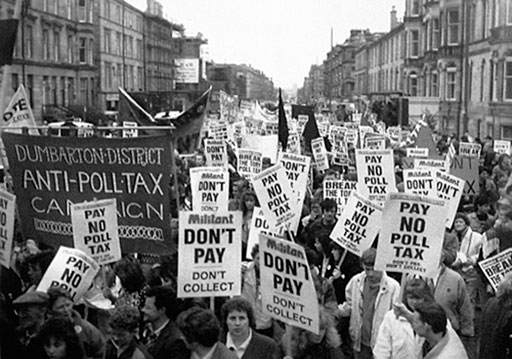4.1 Substantive justice
This is concerned with the content of the law. The legal principles created by Parliament and the courts need to be regarded as ‘just’. The moral and cultural values of the society in which the law is created are especially influential in determining whether the law is regarded as just. For instance, whether the laws on abortion or drugs are regarded as just will largely depend on the attitudes that are prevalent in that society.
Where law is considered unjust the consequences for social order can be potentially far reaching. In the eighteenth century the catalyst for the American War of Independence was the British Government’s decision to impose a tax on tea imported into the American colonies. The American colonists regarded this as unjust as they had no right of representation in the British Parliament and therefore no say in the imposition of taxation. More recently, in the 1990s the imposition of a community charge (more popularly known as the ‘Poll Tax’) imposing a flat rate local authority tax on every adult, regardless of income, was considered unfair by many and led to social unrest.

